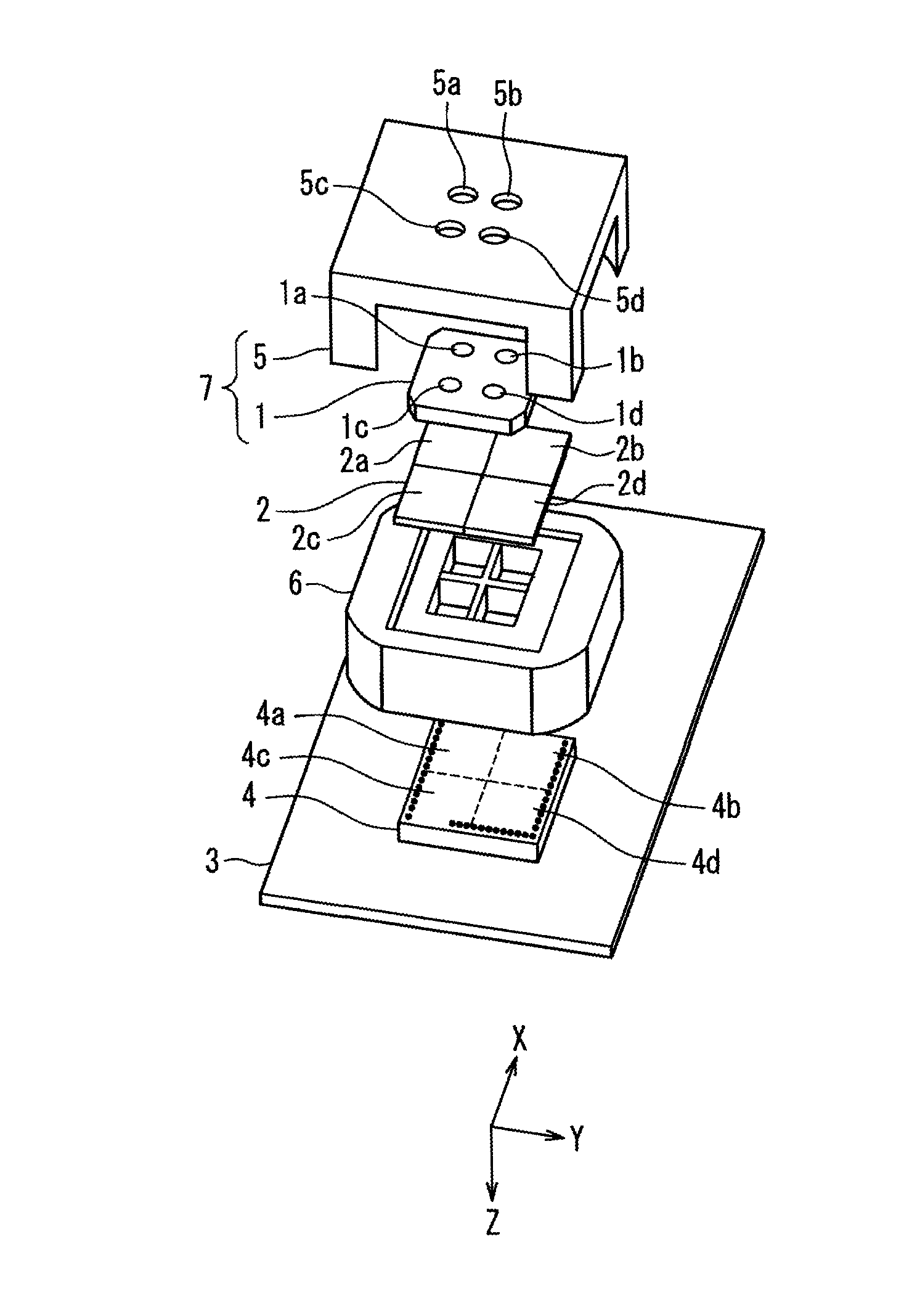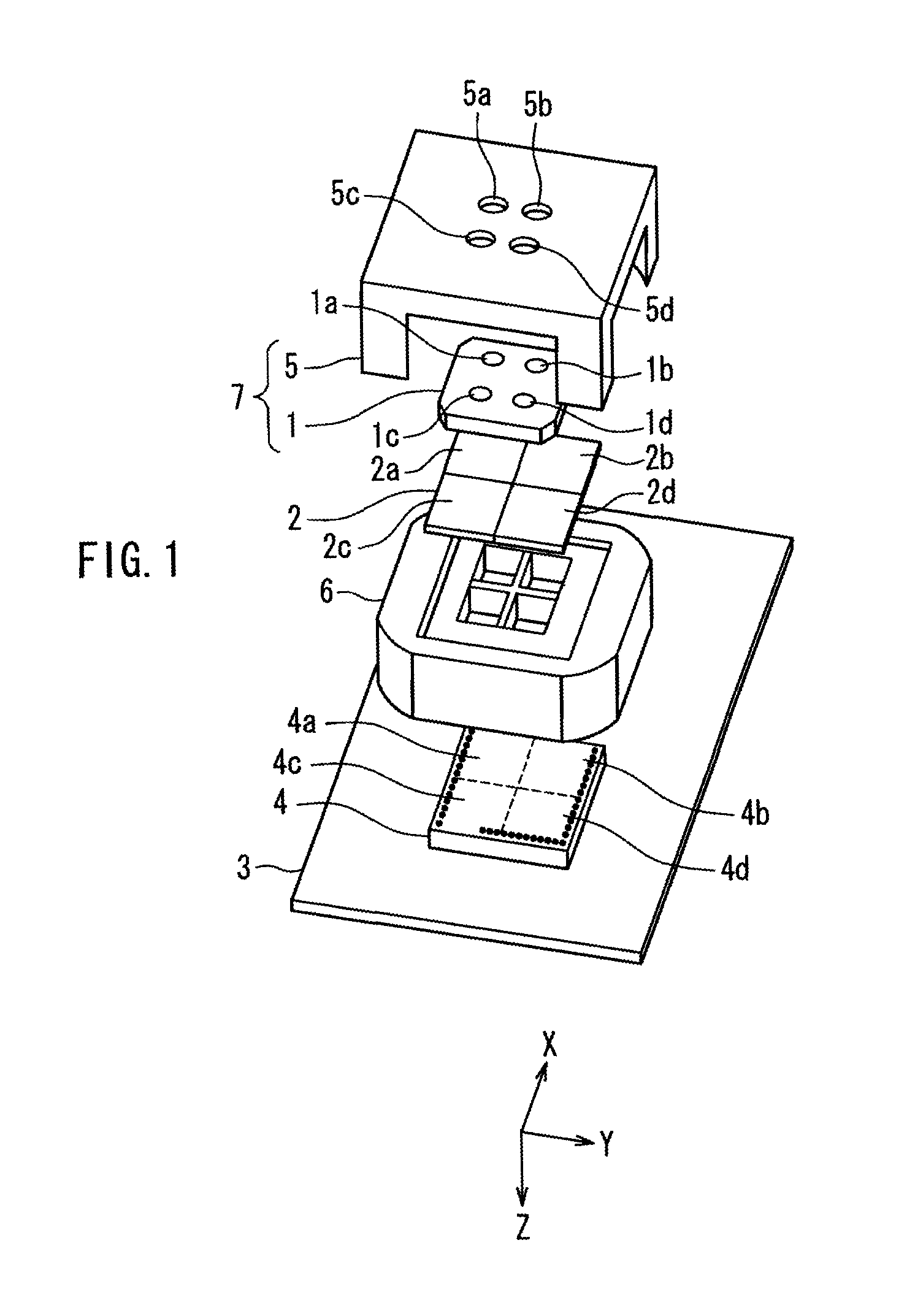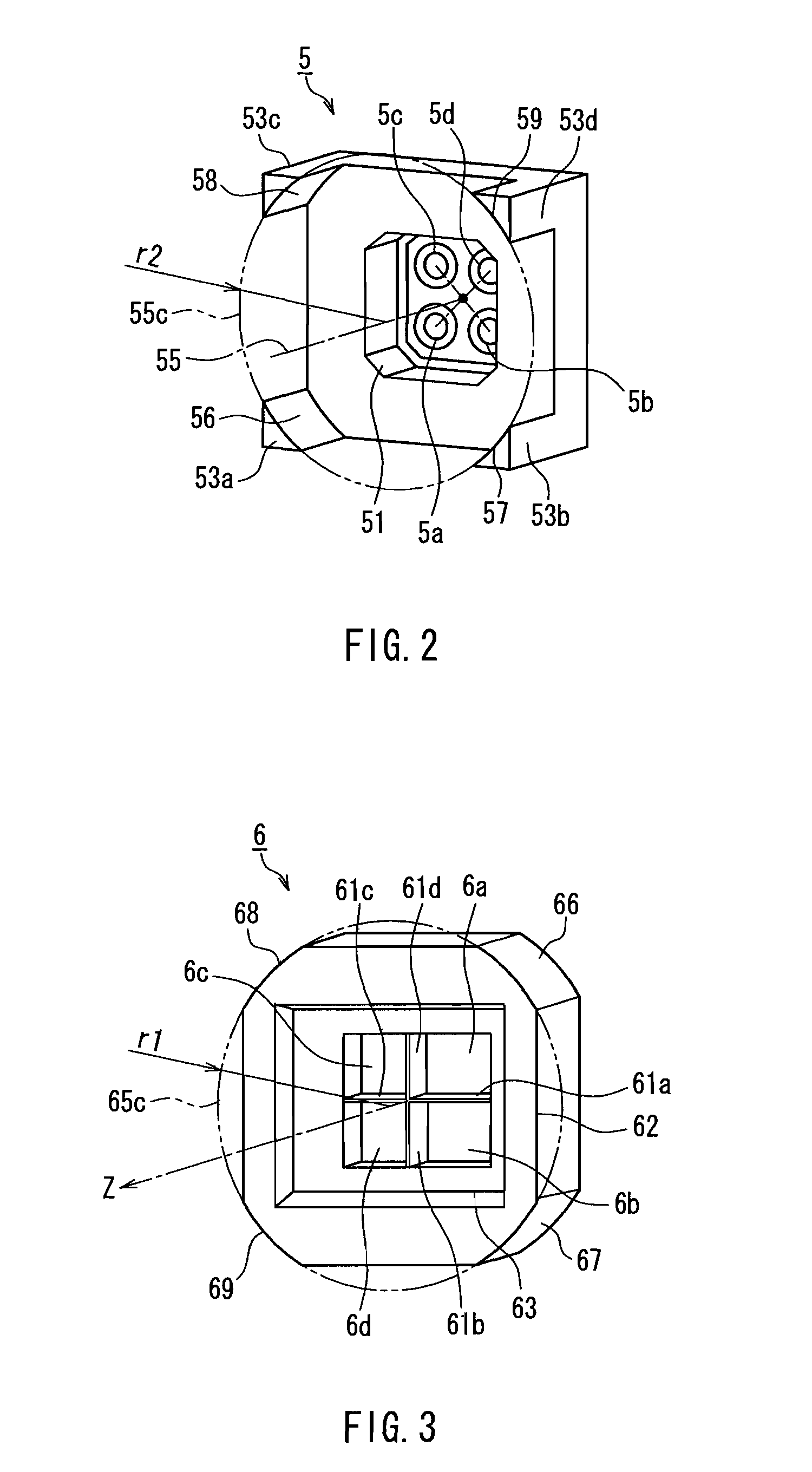Compound eye camera module and method of producing the same
a camera module and compound eye technology, applied in the field of small and thin camera modules, can solve the problems of insufficient thinning, and achieve the effects of reducing cost, thin camera modules, and miniaturizing camera modules
- Summary
- Abstract
- Description
- Claims
- Application Information
AI Technical Summary
Benefits of technology
Problems solved by technology
Method used
Image
Examples
embodiment 1
[0044]Hereinafter, Embodiment 1 of the present invention will be described with reference to the drawings.
[0045]FIG. 1 is an exploded perspective view of a compound eye camera module of Embodiment 1. In FIG. 1, reference numeral 1 denotes a lens array, 2 denotes an optical filter array, 3 denotes a substrate, 4 denotes an imaging element, 5 denotes an upper barrel, 6 denotes a light shielding block (lower barrel), and 7 denotes a lens module. For convenience of the description, an XYZ rectangular coordinate system as shown is assumed. Herein, a Z-axis passes through substantially the center of an effective pixel region of the imaging element 4 and is normal to the effective pixel region. An X-axis is orthogonal to the Z-axis and parallel to light shielding walls 61a, 61c (described later) of the light shielding block 6, and a Y-axis is orthogonal to the Z-axis and parallel to light shielding walls 61b, 61d (described later) of the light shielding block 6.
[0046]The lens array 1 integ...
embodiment 2
[0079]Hereinafter, Embodiment 2 of the present invention will be described with reference to the drawings.
[0080]FIG. 6 is an exploded perspective view of a compound eye camera module of Embodiment 2. In FIG. 6, the same members as those in FIG. 1 are denoted with the same reference numerals as those therein, and the description thereof will be omitted.
[0081]The basic configuration of the camera module of the present embodiment is substantially the same as that of Embodiment 1. The present embodiment is different from Embodiment 1 in the shapes of an upper barrel 500 and a light shielding block 600.
[0082]FIG. 7 is a perspective view of the upper barrel 500 seen from a subject side. The upper barrel 500 in the present embodiment is different from the upper barrel 5 in Embodiment 1 in that grooves 501, 502 are provided on two opposed side surfaces.
[0083]FIG. 8 is a perspective view of the light shielding block 600 seen from the subject side. The light shielding block 600 in the present...
embodiment 3
[0089]The lens array 1 having a plurality of lenses can be obtained integrally, for example, by molding a lens material (e.g., resin or glass) with a mold. In such a case, the optical axis positions of a plurality of lenses on the obtained lens array may be displaced from desired positions due to the production error of the mold, the molding error, etc. For example, as shown in FIG. 11A, there is a case in which a quadrangle with the optical axis positions 11a to 11d of the four lenses 1a to 1d (not shown) arranged in a lattice point shape as apexes may not exactly be a rectangle. In such a case, even if the lens module 7 is adjusted by rotation with respect to the light shielding blocks 6, 600 so that the image-forming regions 13a to 13d of the lenses 1a to 1d do not extend off the imaging regions 4a to 4d, for example, in the case where the distance to a subject is measured with a camera module, using the principle of triangulation, there arise problems in that the measurement pre...
PUM
 Login to View More
Login to View More Abstract
Description
Claims
Application Information
 Login to View More
Login to View More - R&D
- Intellectual Property
- Life Sciences
- Materials
- Tech Scout
- Unparalleled Data Quality
- Higher Quality Content
- 60% Fewer Hallucinations
Browse by: Latest US Patents, China's latest patents, Technical Efficacy Thesaurus, Application Domain, Technology Topic, Popular Technical Reports.
© 2025 PatSnap. All rights reserved.Legal|Privacy policy|Modern Slavery Act Transparency Statement|Sitemap|About US| Contact US: help@patsnap.com



